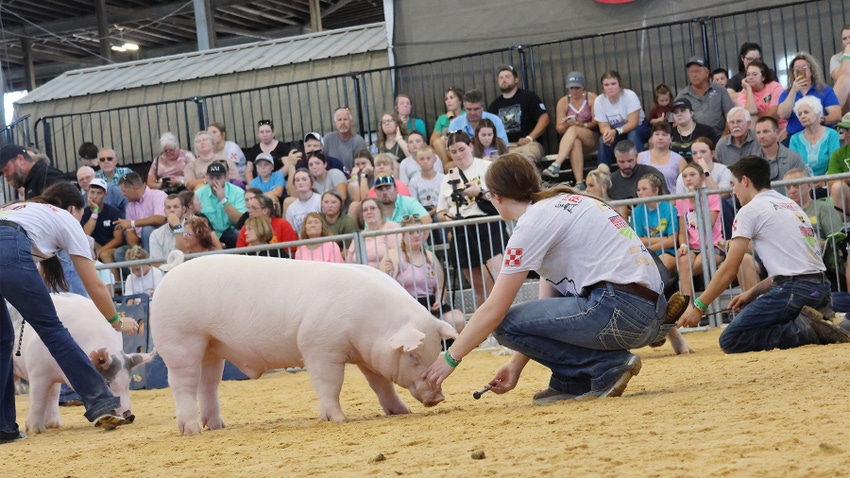
Setting up an appointment with the local veterinarian to obtain a clean bill of health for our sheep was a requirement before the start of any show season. Apparently, not everyone in the livestock show circuit had to abide by that condition, but that is about to change in Missouri.
Late last year, the Missouri Department of Agriculture issued new rules that go into effect this year for showing cattle and swine at county fairs and exhibitions. These new rules bring cattle and swine in line with MDA rules for sheep and goats for traceback in the event of an animal disease by requiring certified veterinary inspections from an accredited veterinarian. In other words, you need to obtain what we’ve always called them — health papers.
“It’s about having healthy animals arrive and healthy animals go home,” says Steve Strubberg, Missouri’s state veterinarian.
So, from one sheep exhibitor to our fellow cattle and swine exhibitors, here are a few tips to prepare for your Missouri Certificate of Veterinary Inspection form:
Obtain an animal ID. Animals must also have an official form of identification. In the sheep industry, we relied on USDA’s National Scrapie Eradication Program, or Scrapie’s tag.
However, according to the Missouri Department of Agriculture, the following are valid forms of official ID: 840 RFID/EID tags, eight- or nine-character National Uniform Eartagging System (NUES) tags, or a registration tattoo if purebred and with proof of registration accompanying the animal.
Get a vet. Every exhibitor must have a valid client-vet relationship. In our early years of showing sheep, large-animal vets were easy to find. But as the years passed, those veterinarians retired. By the end of my girl’s show eligibility, we were driving miles to find a vet to care for our flock, let alone provide health papers. So, seek out a vet, ask if they offer health inspections — we found some small-animal veterinarians who did not — then make an appointment.
Time your inspections. Each health paper is good for 30 days. After that, you need a new one. We tried to set our appointments to at least cover three local county fairs. Typically, the Missouri State Fair was so far out from our last county fair that we had to set a separate appointment for it.
Set aside money. Animal inspections and health papers are not free. How much depends on the veterinary office. For some, it is a lump sum. For others, it is an office visit and paperwork fee. And if you travel to more than one livestock show more than 30 days apart, there will be multiple visits and fees.
Don’t get discouraged. The extra work to obtain health papers may seem like more hassle than it’s worth, but trust me, it’s not. Learning responsibility, experiencing competition and garnering friendships that last a lifetime while showing livestock is well worth securing this one piece of paper.
For make sure you or your child are show-ready this year. See MDA’s Exhibition Rule Change Resources at agriculture.mo.gov.
Read more about:
Missouri State FairAbout the Author(s)
You May Also Like






